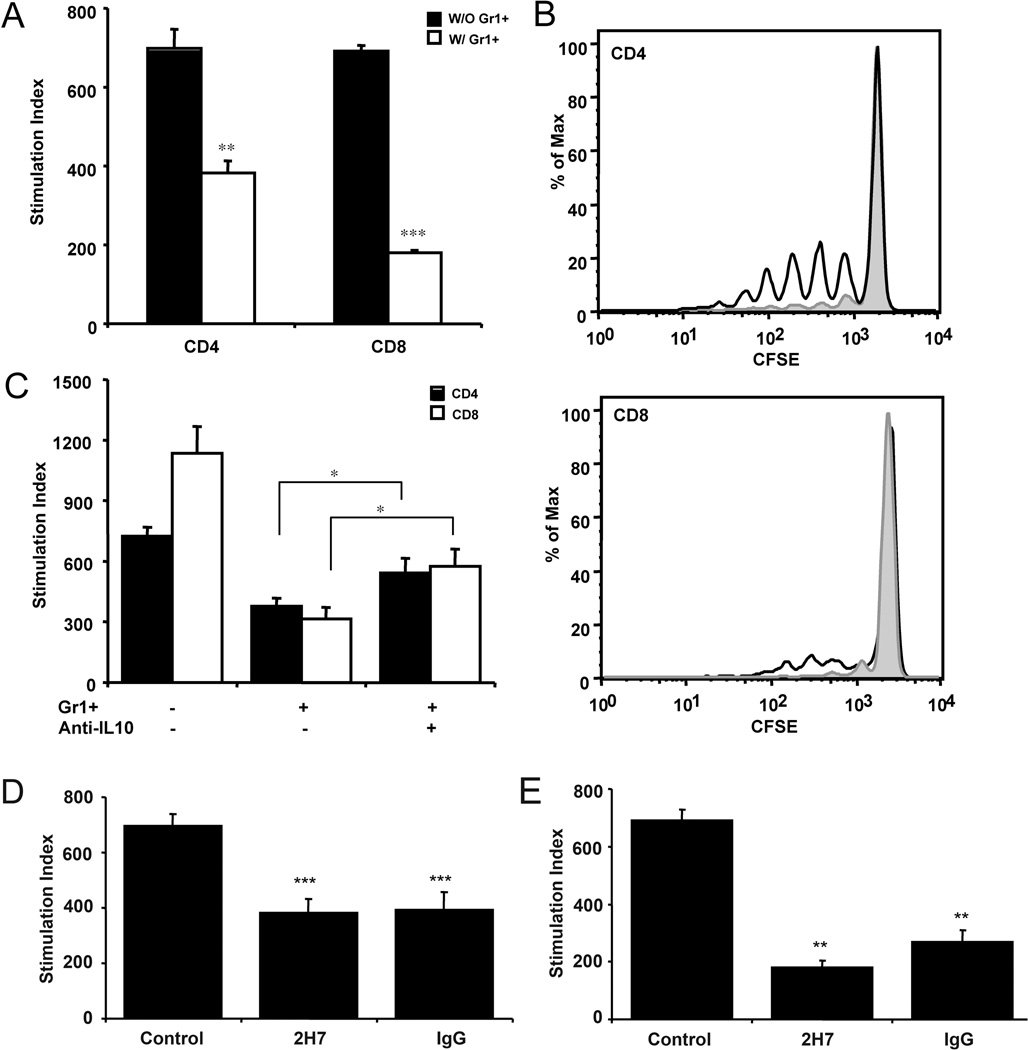Figure 2.
Gr1+CD11b+ cells suppressed diabetogenic T cell proliferation in an IL-10 dependent manner. A) In mixed lymphocyte cultures, purified Gr1+CD11b+ cells (2 × 104/well) suppressed the proliferation of BDC2.5 CD4 T cells (105/well) designated as CD4 or insulin-reactive CD8 T cell clone 6426 (105/well), designated as CD8. One representative data set is shown from at least 3 experiments. B) CFSE labeled BDC2.5 CD4 or NY8.3 CD8 T cells were adoptively transferred into NOD recipients (6 × 106/mouse). NOD recipients were treated with 0.25mg/mouse anti-Gr1 (grey area) or control IgG (dark line) monoclonal antibody at the time of T cell transfer. Cells from pancreatic lymph nodes were collected 7 days later for FACS analysis of CFSE dilution (n=5 each group). C) The addition of neutralizing anti-IL-10 monoclonal antibody (clone JESS-2A5; 10 µg/ml) partially reversed the suppression by Gr1+CD11b+ cells of BDC2.5 CD4 or insulin-reactive CD8 T cell clone 6426 proliferation. One representative data set is shown from at least 3 experiments. Gr1+CD11b+ cells (2 × 104/well) purified from both 2H7 and control IgG treated mice showed comparable suppression of the proliferation of diabetogenic D) BDC2.5 CD4+ (105/well) and E) NY8.3 CD8+ T cells (105/well). One representative data set is shown from 3 experiments. The baseline proliferation, measured by 3H-thymidine incorporation, for all assays was between 100–800 cpm. Error bars represent standard error of the mean. *p<0.05, **p<0.001, ***p<0.0001

